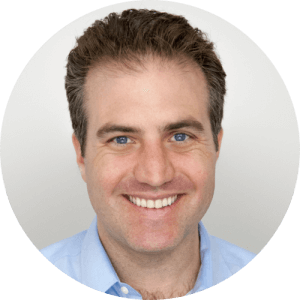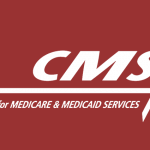How Digital Therapeutics Programs Improve Outcomes and Reduce Costs
DistilNFO had an opportunity to interview Adam Kaufman, President & CEO at Canary Health. We thank Adam for sharing his thoughts with our readers.

Adam Kaufman, President & CEO – Canary Health
1. Adam, thank you for taking the time out of your busy schedule to talk with us. DistilNFO appreciates it.
To start with, tell us about your current role at Canary Health, and how Canary Health came to be. What I feel sets you apart from your competitors is the company and its founders deep roots in healthcare and the experience you each bring that has been integrated into your programs and your relationships with your clients, which in big part has contributed to your success.
Adam: Thank you for the opportunity to share more about Canary Health and our approach to digital therapeutics. We founded Canary Health three-years ago with the unique vision that technology could really enable an individual with one or more chronic conditions to own their own health journey. You’re right that our backgrounds are unique – I am an engineer and health data scientist, our second co-founder and my father is a physician and professor of public health who has participated in healthcare on a global level, and our third co-founder is a technology executive in product roles across both startups and large tech companies.
I think we embody the three-part commitment to consumer-centricity, impacting health and delivering great tech-enabled services that delight participants. And our results – tens of thousands impacted, numerous published articles, dozens of healthcare clients and partners – demonstrate the value of this approach.
2. What do you see as the current needs of the healthcare industry and what solutions does Canary Health offer to patients, providers and payers to help meet these needs?
Adam: The most important health and healthcare trend is the hundreds of millions now living with chronic conditions – their quality of life is lower, their health is worse and the costs to them and the whole system are higher. Canary Health enables each individual to better self-manage and take more control of their own health and healthcare journey. We are very fortunate to collaborate with a true pioneer – Kate Lorig – and bring to the market a program she developed nearly 30 years ago at the Stanford University Center for Patient Education Research. This program – The Chronic Disease Self-Management Program – is the gold-standard, an evidence-based program to support individuals with a proprietary and innovative peer support and peer coaching approach to self-management support.
3. Canary Health happens to be one of the industry founders of digital therapeutics. Can you tell us how you would define it?
Adam: We’re very proud to be working at the innovative cutting-edge of applying digital technologies to healthcare. Digital Therapeutics represents the rigorous application of evidenced-based, multi-faceted digital programs to improving health. As an industry, we’re committed to delivering outcomes on the level of other therapeutic classes such as pharmaceuticals and medical devices. And probably most importantly, Canary Health is committed to the rigorous evaluation and evidence-based proof of our programs’ impacts.
4. So as with anything “new” in healthcare, decision makers want to know if programs like these actually work. You’ve just had your program, Better Choices, Better Health® featured in one of the largest peer-reviewed major research studies, the Stanford-Anthem study, that proves that it actually does work. Can you tell us a little about the study?
Adam: We were very fortunate that our colleagues from Stanford University – Kate Lorig and her team, along with our partners at the National Council on Aging, and Oasis, conducted a very large and rigorous study of our digital therapeutics (online) program and the community-based (in-person) version of the program at Anthem. The study engaged nearly 1,300 individuals with diabetes and tested whether a rigorous approach based on peer-support and peer-coaching to improve self-management and self-efficacy would impact health and healthcare utilization and costs. The team has now published three peer-reviewed articles demonstrating both the impressive clinical outcomes and cost savings outcomes.
5. What were some of the significant findings in the study?
Adam: The proven outcomes ranged across all the key measures.
- Individual confidence and self-efficacy improved
- Medication adherence increased and health system navigation improved
- A1C reduced significantly – for example for those with elevated A1C at study baseline it reduced 1.27% at 12-months
- All-cause healthcare utilization reduced
- Program delivers a 3:1 ROI
If anyone would like to learn more about the study, the results, and our program, you can attend one of our upcoming webinars August 15th and 21st, by registering at bit.ly/canarywebinar.
6. How important is peer support in helping people?
Adam: As I reflect, I think the real key and differentiation of a peer-based model is its focus (1) on individual self-efficacy (confidence) and (2) on the whole person. The medical model tends to focus on condition, symptoms, and therapies and can often neglect the broader life impact of chronic conditions. Peers know first hand the full breadth of how health impacts life – from its emotional impacts to relationship impacts to lifestyle and potentially to roles and self-worth.
Or put more structurally – Peer-support has proven critical to helping people improve their own self-management. Peers are really uniquely capable of helping in so many ways – they can help contextualize and normalize; they offer tips and nudging; they provide accountability and help celebrate. It’s something Canary Health feels strongly about and supports through our programming.
7. We also heard that you recently received CDC full recognition for your Diabetes Prevention Program (DPP), congratulations on being one of the first of a few to receive this. Just another feather in your cap. Can you share why this recognition is important to the healthcare industry?
Adam: We were very excited to receive CDC Full Recognition. The Recognition requires not only rigor and compliance in program delivery but actual outcomes in terms of program engagement and weight loss. Its critical that we and other DPP providers demonstrate this level of program impact to continue to convince payers to cover the program. Our big hope is that CMS will continue along its once promised path and cover digital-DPP.
8. How might someone reading this enroll in one of your programs?
Adam: Currently our programs are only available to members of our health plan customers, and are offered free of charge to their members. One thing to note – you might be covered and not know since all our programs rollout from our clients and partners. That means you won’t readily see a Canary Health brand on materials or programs. The easiest way to check – send us an email at info@canaryhealth.com and be sure to include your health plan, and we’ll be able to send you an email back whether it’s available to you or not, and how you can sign up.
9. Any closing thoughts you would like to share with our readers?
Adam: Just how bullish we are on the current wave of great digital companies – among which we’re proud to count Canary Health – and the real impact we’re having on thousands of lives. Digital therapeutics are a strong complement to great care as well as more traditional therapeutic classes – we believe strongly in a 1+1 is way more than 2. Thank you for the opportunity to share our story.










